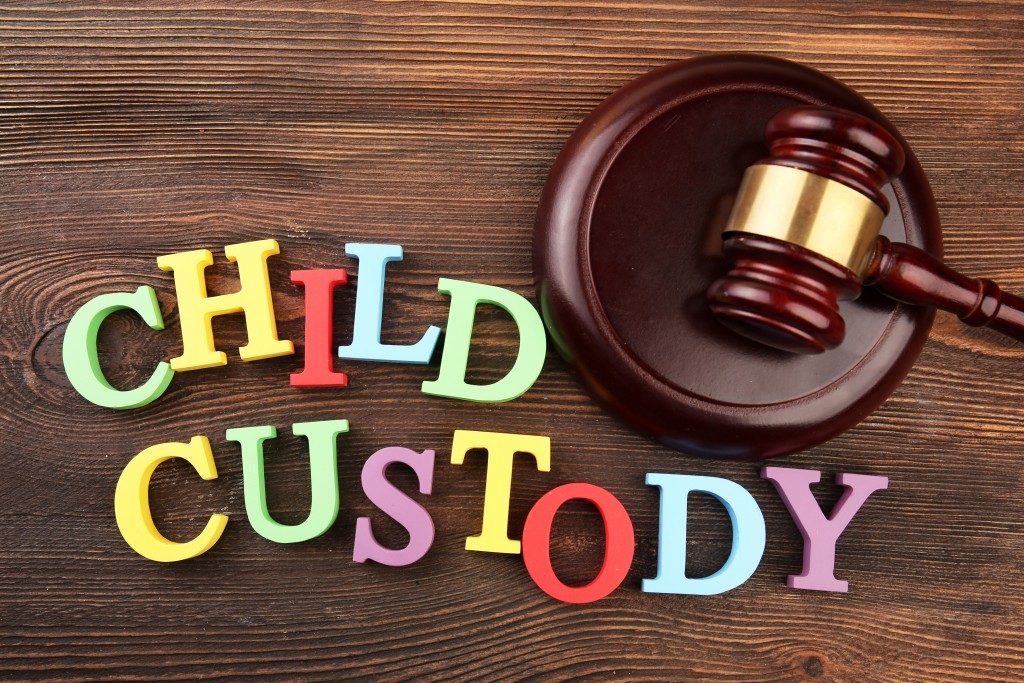When parents get divorced, their children get caught in between the crossfire between their parents as they fight for child custody. However, reasonable arrangements can be made given that both parents are willing to comply with the specific mandates of the law about child custody. Parents need to understand that their divorce is already a complicated ordeal that the entire family has to deal with. On top of this, children are not very good at handling stress and processing things like divorce.
As much as possible, the legal system in the United States wants to make child custody matters as uncomplicated as possible. This way, the process of determining custody will not have detrimental impacts on children whose parents just got divorced. Divorce is already a very stressful ordeal, and children do not need to witness their parents fighting about who they get to live with. If parents cannot agree on custody matters, the children are made to suffer more.
When couples with children get divorced, the court of jurisdiction responsible for divorce proceedings will also be responsible for determining specific arrangements for child custody. Below are some basic facts about divorce and child custody that every parent must know about.
After all, parents need to think about their actions and choices thoroughly so that they will not compromise the well-being of their children. Educating themselves about legal matters related to family relationships can help make legal processes smoother and less traumatic. Read on to learn more about divorce and child custody.
What is Child Custody?
Child custody pertains to determining parental rights to children once couples with children get divorced. If married couples with children get a divorce, both parents have joint guardianship over their children. This means that their parental rights are equal. Both parents have the same rights when it comes to their children.
However, parents will ultimately have to decide where the children will stay with. After all, they will no longer be living together. In this case, the court will do its best to reach a fair and unbiased decision about who the children will live with. The court has to consider the children’s best interests when deciding which parent they should live with.
The process of considering the children’s best interests can be complicated because the court has to consider several factors, such as the wishes of the children’s parents, the children’s wishes, and the children’s relationship with their siblings. In addition to this, the court also has to decide upon the impact of the presence of other significant people in the children’s lives, such as aunts, uncles, cousins, and grandparents.
Furthermore, the court has to determine the children’s comfort at home, in school, and within the community. The mental and physical well-being of the children, the parents, and all significant individuals in the children’s lives will also be considered.
The Role of the Parents and Types of Custody

When the court has decided upon which parent the children will stay with, the parent with custody needs to ensure that the children are coping well. In addition to this, the parent with custody will become responsible for controlling all important decisions that pertain to the children’s upbringing, education, and health care.
When it comes to determining the type of custody, courts have the power to choose among the different types of custody like temporary custody, exclusive custody, and joint custody. Temporary custody pertains to granting custody to a parent for the duration of the separation or divorce proceeding. Exclusive custody pertains to granting one parent exclusive custody rights wherein the other parent will be excluded. On the other hand, joint custody grants both parents equal rights when it comes to making decisions about the children’s welfare and upbringing.
Joint custody is only granted when the court believes that both parents will perform their duties as parents properly. There is also a possibility that the court could grant third-party custody of the children. Third-party custody pertains to custody granted to grandparents or other close relatives.
The courts also determine visitation rights. Even if exclusive custody has been granted to one parent, the other parent still has the rights to visit the children. However, this is only applicable if the other parent’s presence is not detrimental to the overall health and well-being of the children. Otherwise, the other parent might not be granted visitation rights.
Dealing with Child Custody
Even though divorce is a messy process, courts need to determine custody for children to guarantee that they will always be well-cared for. The courts aim to make decisions that will serve the children’s best interests. This way, the entire process will not be as traumatizing as it normally is, especially for children.



